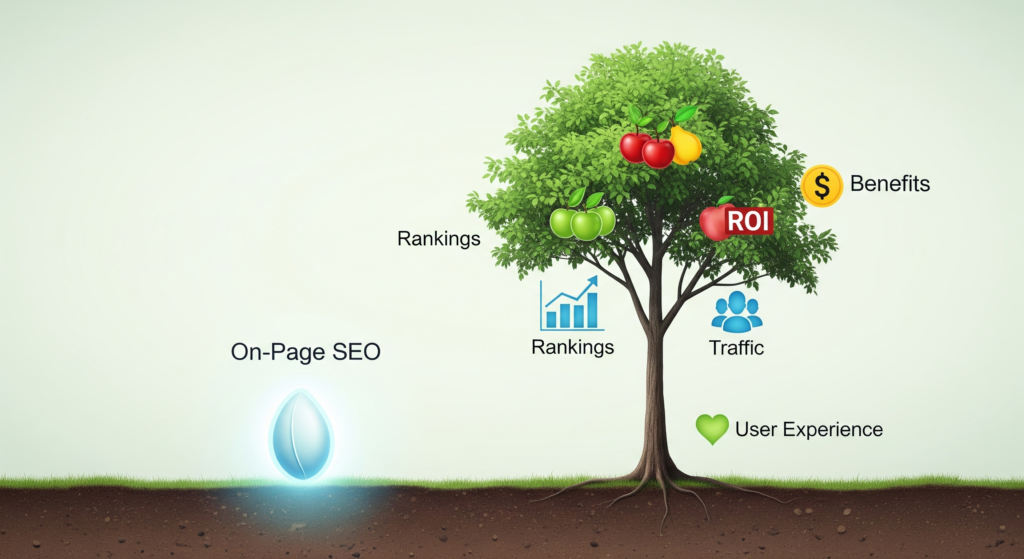Many businesses view their website as a digital storefront. But if no one can find it, it might as well be on a deserted street. On-Page SEO is the art and science of renovating that storefront—polishing the windows, creating clear signage, and organizing the aisles—so that both customers and search engines are eager to come inside.
While the world of SEO has many facets, On-Page SEO is your most direct and powerful tool for influencing your search rankings. Investing in it is not just a marketing task; it’s a strategic business decision that delivers tangible, long-term benefits. Let’s explore the seven most significant advantages of a strong On-Page SEO strategy.
1. Drives Higher Quality, High-Intent Traffic
On-Page SEO is not about attracting just anyone; it’s about attracting the right people. By carefully targeting keywords that your ideal customers use when they are ready to make a decision, you bring visitors to your site who are actively looking for your solutions. This high-intent traffic is far more likely to convert into leads and sales than general, untargeted traffic.
2. Improves Search Engine Rankings
This is the most direct benefit. On-Page elements like title tags, headings, and well-written content act as clear signals to Google, explaining exactly what your page is about. When Google understands your content’s relevance and quality, it rewards you with higher rankings in search results, putting you directly in front of more potential customers.
3. Enhances User Experience (UX)
The principles of good On-Page SEO and good user experience are one and the same. A well-structured page with clear headings is easier to read. Optimized images make your site load faster. Intuitive internal linking helps users find the information they need. A positive user experience keeps visitors on your site longer, which is a powerful signal to Google that your site is valuable, further boosting your rankings.
4. Builds Trust and Brand Authority
Ranking on the first page of Google acts as a powerful third-party endorsement. Users instinctively trust the organic results that Google chooses to display. By consistently appearing for relevant searches, you position your brand as a credible and authoritative leader in your industry, building trust before a potential customer even clicks on your website.
5. Creates a Sustainable, Long-Term Asset
Unlike paid advertising, where your visibility vanishes the moment you stop paying, On-Page SEO builds lasting value. A well-optimized page is a digital asset that can hold its ranking and continue to generate organic traffic, leads, and revenue for months or even years. It’s an investment in your business’s future.
6. Increases Click-Through Rate (CTR)
On-Page SEO isn’t just about rankings; it’s about earning the click. By crafting compelling title tags and meta descriptions, you can create a search result listing that stands out from the competition. A higher click-through rate not only drives more traffic but also signals to Google that your result is highly relevant, which can further improve your rankings.
7. Provides an Excellent Return on Investment (ROI)
When you combine all these benefits—higher quality traffic, better user experience, increased trust, and lasting results—the outcome is a highly cost-effective marketing channel. The leads generated through organic search are often more qualified and less expensive to acquire than those from other channels, leading to a superior and sustainable return on investment.
Conclusion: The Foundation of Your Digital Presence
On-Page SEO is the foundation upon which all your other digital marketing efforts should be built. It is the most direct and controllable way to improve your visibility, attract your ideal customers, and transform your website into a powerful engine for business growth.

